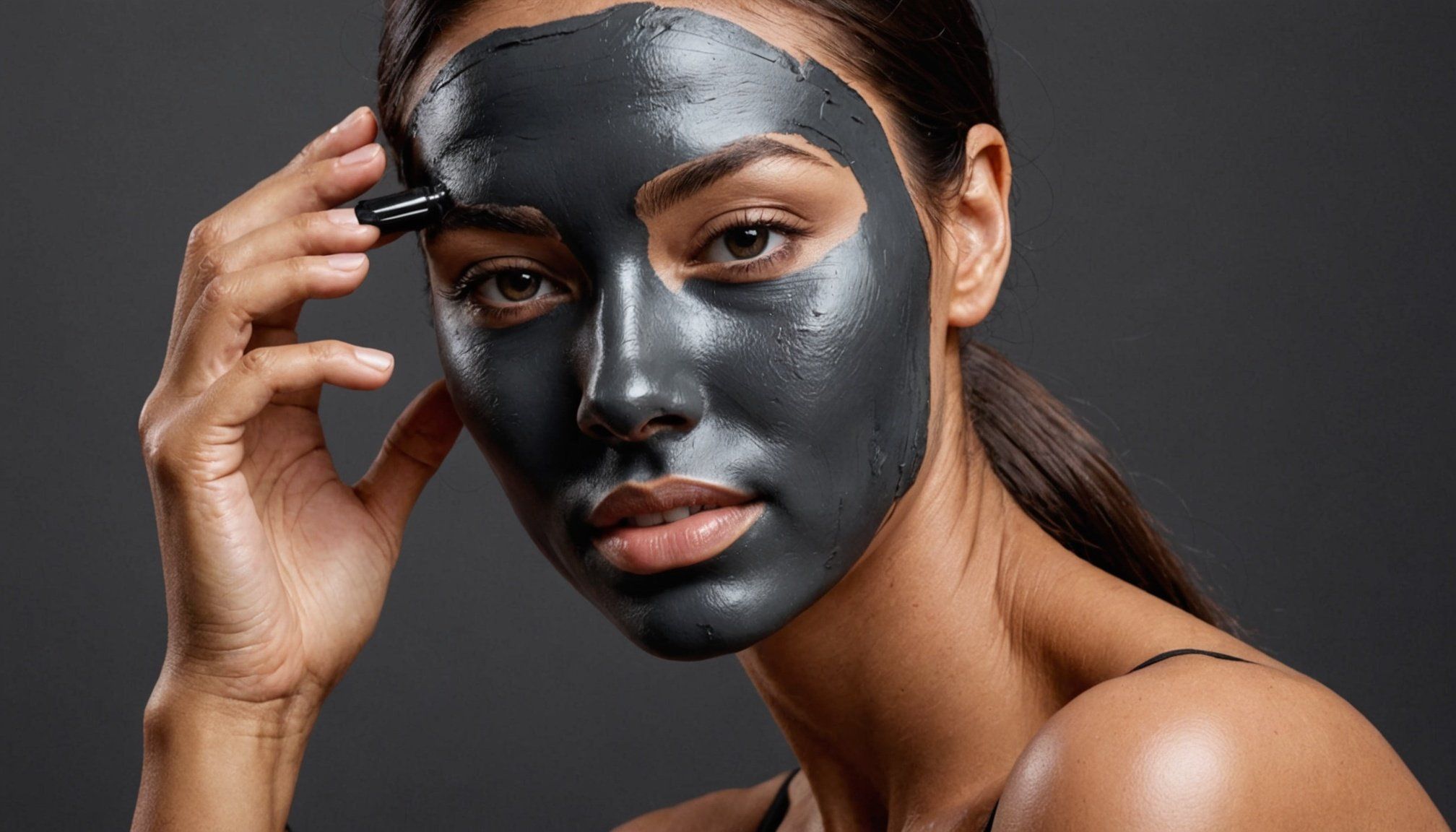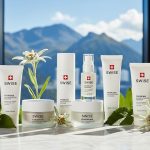Understanding Activated Charcoal
Activated charcoal, renowned for its unique detoxification properties, is a fine black powder crafted from bone char, coconut shells, peat, petroleum coke, coal, olive pits, or sawdust. Its activation occurs through a high-temperature process enhancing its porosity, making it highly effective in trapping toxins and impurities. This attribute extends its benefits beyond general usage into the realm of skincare.
In skincare, activated charcoal works by binding to dirt and oil on the skin’s surface. Its adsorptive qualities effectively extract impurities, leaving the skin feeling purified and revitalised. Products such as masks, cleansers, and scrubs leverage activated charcoal to help users achieve a clearer complexion.
Also to see : Unveiling enchanting fragrance notes that embody the spirit of a british autumn
Sourcing activated charcoal from reputable sources ensures its effectiveness and safety in cosmetic products. Reputable manufacturers often procure raw materials from sustainable sources to maintain high-quality skincare qualities.
Its use in skincare signifies its broader application in delivering a solution that aligns with nature’s delicate balance. By understanding these benefits, consumers can make informed decisions about incorporating activated charcoal into their routines.
Topic to read : Why Does Swiss Skincare Stand Out Among Global Beauty Products Today?
How Activated Charcoal Benefits Skincare
- Impurity Removal: Binds and removes dirt and oil.
- Skin Rejuvenation: Leaves skin feeling fresh and renewed.
- Detoxification: Provides deep cleansing.
Acne-Fighting Abilities
Activated charcoal shows significant promise in acne treatment due to its ability to absorb excess oil and clear pores effectively. One of the primary ways it combats acne is by reducing the oil buildup that clogs pores, a major contributor to breakouts. Unlike some traditional acne treatments, activated charcoal offers a more natural approach, making it a popular choice for those seeking gentle treatment methods.
When comparing with other acne-fighting ingredients like benzoyl peroxide or salicylic acid, activated charcoal is less likely to cause irritation, which can be particularly advantageous for individuals with sensitive skin. It’s worth noting that while benzoyl peroxide and salicylic acid serve as more potent chemical-based solutions, activated charcoal’s oil absorption capacity provides a solution without the harsh effects often associated with these alternatives.
User testimonials often highlight the improvement in skin appearance after consistent use, corroborated by clinical evidence supporting its efficacy in pore cleansing. Users report a noticeable reduction in acne after incorporating activated charcoal into their skincare routine, complementing its role in broader skincare solutions. This feedback strengthens its credibility as a viable option for those targeting pore cleansing and oil control.
Suitability for Different Skin Types
When considering activated charcoal in skincare, its adaptability to various skin types becomes a crucial factor. For those with oily skin, the element’s exceptional oil absorption capabilities provide a natural solution to excess sebum production, helping maintain a balanced complexion. Its application often results in visibly reduced shine and refined pores, making it a favoured choice for oily skin management.
Conversely, individuals with sensitive skin can benefit from activated charcoal’s gentle nature compared to harsher chemicals. However, exercising caution is essential. It is advisable to perform a patch test before fully incorporating it into one’s routine to observe any adverse reactions. For people with dry skin, moderation in the use of activated charcoal is recommended to avoid stripping essential oils. Applying a hydrating serum post-use can mitigate any potential drying effects.
Initiating a skincare routine with activated charcoal products should be gradual, perhaps starting once or twice a week, and adapting frequency based on skin response. This method prevents overuse and potential irritation. Understanding skin type compatibility ensures activated charcoal serves its purpose effectively, enhancing one’s skincare regimen with minimal fuss.
Incorporating Activated Charcoal into Your Skincare Routine
Integrating activated charcoal into your skincare routine offers numerous benefits, particularly in the form of masks, cleansers, and scrubs. These product types harness the unique skincare qualities of activated charcoal, providing users with diverse options to match their personal preferences and needs.
When deciding on the best way to include activated charcoal in an existing routine, consider beginning with a charcoal mask. These masks are particularly effective in detoxification by drawing out impurities and leaving the skin refreshed. It is advisable to use such masks once or twice a week, depending on skin type and tolerance. For those with sensitive skin, it is crucial to monitor how the skin reacts and adjust usage frequency accordingly.
Incorporating activated charcoal-based cleansers into daily routines can enhance routine effectiveness. Cleansers aid in impurity removal, making this an ideal choice for everyday use. As with masks, users should observe skin response to determine the ideal frequency. Layering with moisturisers or hydrating serums is recommended to maintain skin hydration and balance after using charcoal products. By following these guidelines, activated charcoal benefits can be maximised while minimising potential irritation or dryness.
Potential Side Effects and Considerations
Incorporating activated charcoal into skincare requires awareness of possible side effects of activated charcoal to ensure a safe experience. Although generally well-tolerated, some users report allergic reactions such as redness, itching, or swelling. These reactions often indicate sensitivity; hence, performing a patch test is prudent before widespread application.
Activated charcoal can cause dryness, particularly in individuals with already dry or sensitive skin. To combat this, users should follow up with a hydrating serum or moisturizer, effectively reducing moisture loss after application. For individuals with specific skin conditions like eczema or psoriasis, consulting a dermatologist can prevent exacerbation of these concerns.
While activated charcoal presents low risk for serious adverse events, correctly discontinuing its use is crucial if reactions persist. Immediate cessation and seeking medical advice can alleviate prolonged discomfort or irritation. Regularly observing one’s skin response allows for adjusting the usage frequency and concentration of activated charcoal products accordingly.
By acknowledging these usage warnings and integrating appropriate precautions, individuals can harness the benefits of activated charcoal without compromising skin health, thus enriching their skincare journey.
Comparison with Other Skincare Ingredients
When examining skincare ingredient comparisons, activated charcoal often stands out against others like clay and salicylic acid. Each of these components brings unique benefits to skincare routines. Activated charcoal excels in detoxifying skincare, known for its strong impurity removal due to its adsorptive abilities. Unlike clay, which primarily aims at absorbing oil and soothing, charcoal also targets deeper detoxification.
Activated charcoal’s oil absorption competes closely with that of clay but offers an added advantage of deep pore cleansing, often giving it an edge in acne treatment scenarios. Moreover, when compared with salicylic acid, a staple for acne-prone skin, charcoal presents a gentler alternative. While salicylic acid can sometimes irritate sensitive skin, activated charcoal is milder, making it suitable for more frequent use.
For those considering holistic skincare benefits, integrating activated charcoal alongside clay or salicylic acid might enhance outcomes. Combining charcoal with other ingredients can maximize skincare qualities, ensuring comprehensive management of various skin concerns. The ability to blend activated charcoal with other components allows flexibility, catering to distinct skincare needs effectively.
Detoxifying Properties of Activated Charcoal
Activated charcoal’s detoxifying skincare properties stem from its unique ability to trap toxins and impurities through a process known as adsorption. This mechanism effectively binds dirt and oil to its porous surface, preventing harmful substances from penetrating deeper skin layers. By doing so, it achieves remarkable impurity removal, leaving the skin surface both purified and revitalised.
Studies have demonstrated the efficacy of activated charcoal in detoxifying the skin, corroborating its often-claimed benefits. These studies support its potential to enhance skin rejuvenation by facilitating healthier skin cell turnover and reducing inflammation. Users typically experience a fresher, cleaner complexion as a result of these detoxifying actions.
The benefits of a detoxified skin surface encompass more than cosmetic appearance; detoxification can help prevent environmental contaminants from causing long-term skin damage. This protective layer significantly favours individuals with acne-prone or sensitive skin, as it reduces the risk of irritation and breakouts.
Overall, the consistent usage of activated charcoal in skincare routines can lead to long-term improvements in skin health by promoting a cleaner, more resilient surface that’s equipped to handle daily environmental stressors.











